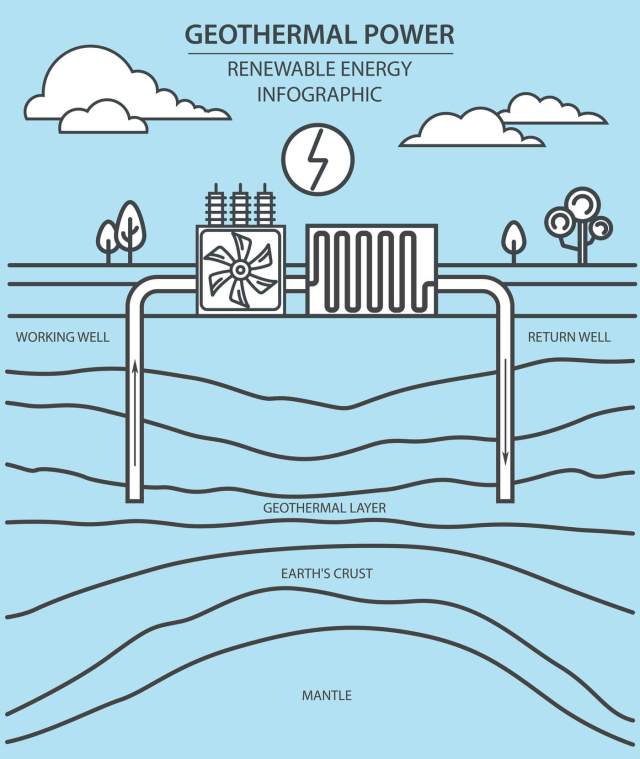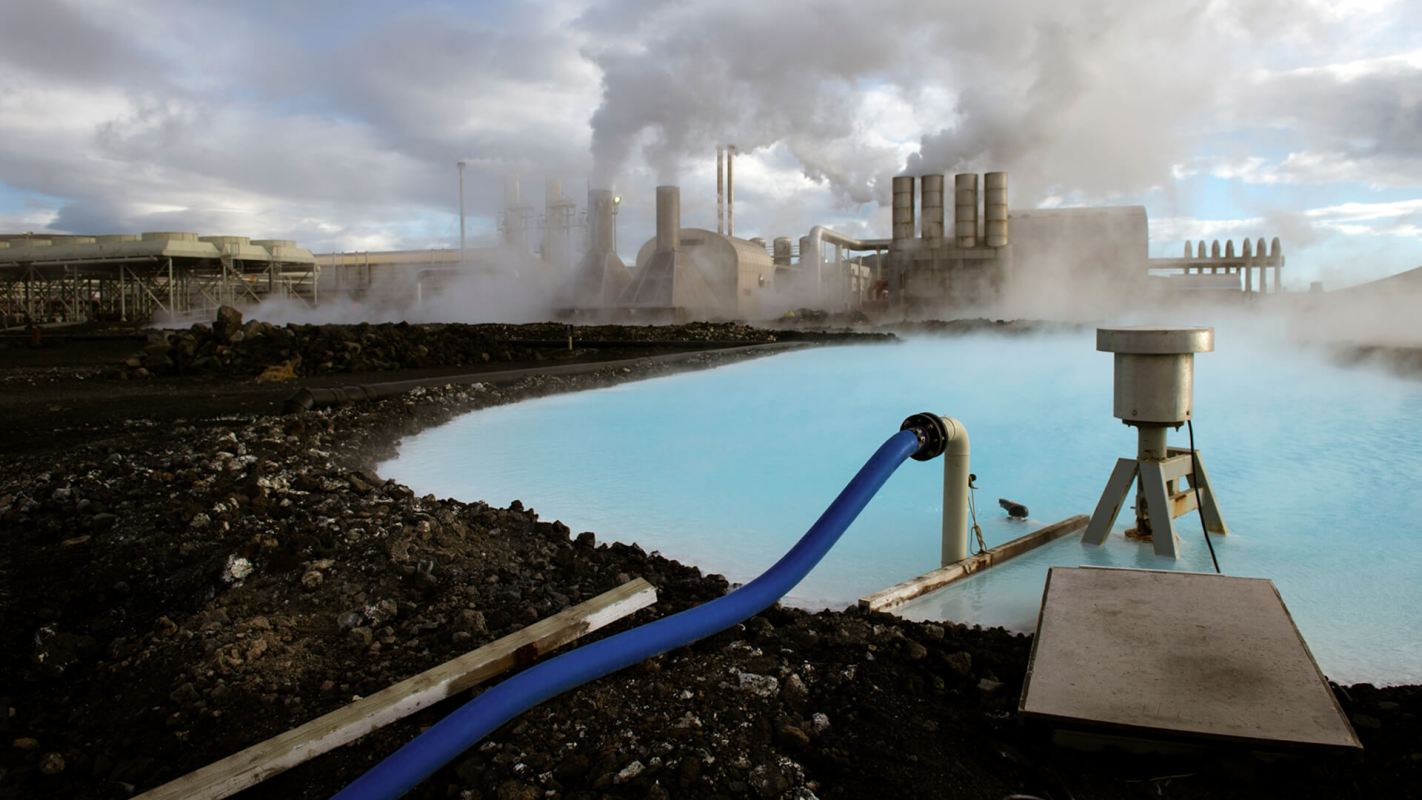Did you know the "heat beneath your feet," geothermal energy, can save you an average of $1,200 a year just by switching your old home heating equipment to a heat pump?
Let's explore how.
Geothermal energy
Geothermal energy that is heat produced and stored within the Earth.
For a little Earth science refresher, the Earth's core is solid iron. It undergoes a natural process of decay that releases heat and is as hot as the surface of the sun.
💡Save thousands with a heat pump
A heat pump can save you thousands of dollars in heating and cooling costs — but first you have to find the right installer at the right price.
Use EnergySage's free tool today to find local options, compare prices, and see how much you can save.

The Cool Down may receive a commission on signups made through links on this page, but we only promote partners we vet and believe in. For more cool tips like this one, check out our solutions list here.
This heat from the core radiates out and warms the other layers of the Earth's center, which then warms rocks and underground water just beneath our feet.
Now onto math: what do you get when you add intense geothermal heat to groundwater? The answer is geothermal features like Yellowstone National Park's Old Faithful Geyser and Colorado's Conundrum Hot Springs.
Humans have used these geothermal features for thousands of years to stay warm and clean.
But these days, "the heat beneath your feet" is now also used to heat and cool homes and buildings through technologies like heat pumps.
And because the Earth naturally and constantly produces geothermal energy, harnessing the heat to generate electricity can provide homeowners with massive savings on their electricity bills –– over a grand a year for some folks.

Ground-source heat pumps
Ground-source heat pumps use a series of underground pipes and the temperature difference between the air and the underground to provide space heating, air conditioning, and water heating for a building.
For heating, the ground pipes carry a fluid, often water, warmed by the surrounding groundwater, rock, or soil ground into the building.
The fluid passes through a heat exchanger so that heat can be taken from the fluid and used to warm the building.
The fluid then returns to the ground loop to eventually repeat the process.
For air conditioning or space cooling, the ground pump works in reverse. The fluid takes up the heat from indoor air and transfers it into the ground as the fluid gets pumped through the below-surface pipes.
Direct-use geothermal systems
Direct-use geothermal systems are heat pumps au naturale, using naturally heated groundwater from features like geysers and hot springs.
A well is drilled into an aquifer beneath the Earth's surface that holds hot groundwater. The hot water can either rise to the surface or get pumped to the surface through a pump system.
From here, the water is usually hot enough to heat large pools, multiple buildings, and melt iced roads.
Clean energy
Geothermal systems differ from other heating and cooling systems because they transfer naturally occurring heat within the Earth rather than creating heat by burning fuels as gas furnaces do.
Geothermal energy is clean energy because it will never run out, and doesn't pollute the air with harmful gases as dirty energy sources like coal do.
Consumer benefits
All heat pumps have over 100% efficiency and, depending on the outdoor temperature, heat pumps can far exceed 100% –– this means big savings.
Numerous factors influence how much you can save with a heat pump, but what heating equipment you switch from largely determines your savings.
Carbon Switch found that switching from a methane gas furnace to a heat pump can save an average of $105 annually, whereas switching from baseboard heaters to a heat pump produces up to a whopping $1,287 savings each year, with the average homeowner saving $670 annually.
If you aren't sold on the savings from switching to a heat pump, consider your health: gas furnaces and boilers release toxic gas into your home that can worsen breathing problems like asthma.
So switching to a heat pump, which doesn't produce air pollution, is a way to improve your home's indoor air quality.
Ground pumps require a small amount of electricity to operate, but they make up for it by delivering as much as five times the energy from the ground. Coupled with tax credits for heat pumps in the Inflation Reduction Act, adding a heat pump to your home is an investment that will pay itself off.
Join our free newsletter for weekly updates on the coolest innovations improving our lives and saving our planet.









